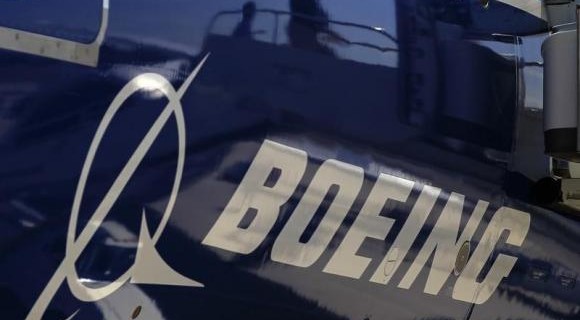Boeing Chief Defends Accounting Practice

Dennis Muilenburg ‘very confident’ in bookkeeping system days after report alleging SEC probe
Boeing Co. Chief Executive Dennis Muilenburg on Wednesday defended the aerospace company’s accounting practices and corporate strategy in the wake of weeks of volatile stock movements.
The company’s shares have slumped almost 20% this year on concerns about its cash generation and competitive position, and took another hit last week following a media report that the Securities and Exchange Commission was probing its financial projections.
Mr. Muilenburg defended the company’s longtime use of a system called program accounting and reaffirmed the expectation that it would deliver the profitability and cash flow that it has promised investors on its flagship 787 Dreamliner. He neither confirmed nor denied the existence of any investigation—the SEC has also declined to comment—but sought to calm investor concerns.
“We are very confident in our financials,” Mr. Muilenburg said at an investor event. “I personally signed off on [our filings] last week.”
Boeing uses program accounting to spread its high early costs over a large block of deliveries. The method, which is compliant with Generally Accepted Accounting Principles, lets the company book future profits and cost-cutting expectations in current earnings, allowing Boeing to consider the 787 Dreamliner program profitable, despite its cost to build each jet still being higher than its sale price. Boeing expects to break even on those unit costs later in 2016.
“It’s a very disciplined, rigorous accounting process, one we understand well. And the way we apply it on 787 is the same way we apply it on all of our commercial airplane lines,” he said, anticipating the advanced jet to be as profitable as its long-range 777 aircraft over the life of the program.
Mr. Muilenburg said there were no plans to change its program accounting system, which has so far tallied more than $28.5 billion in deferred costs building the Dreamliner. However, he acknowledged that recovering those costs was a driver in Boeing’s overall corporate strategy.
“It factors into our innovation model,” said Mr. Muilenburg. Boeing has pivoted its strategy toward productivity improvements in its factories and at its suppliers to cut costs, while refocusing its production development on more modest incremental advances.
Mr. Muilenburg said, however, that Boeing expects to make a decision over the next 12 to 18 months about a new plane that would fit between its biggest single-aisle 737 and its Dreamliner for medium-range missions.
He also defended Boeing’s competitive position, saying that cost cutting amid continued pricing pressure from rival Airbus Group SE hadn’t changed its anticipated margins. He called plans for further cuts by eliminating management jobs as an offensive, not defensive, move.
Despite low oil prices and slowing economic activity in key regions that Boeing is counting on for its future growth, Mr. Muilenburg said that emerging markets like China, India and Indonesia are “vastly underserved,” with air-traffic expansion outpacing local gross domestic product growth.
Mr. Muilenburg said the company will be delivering “well north of 900” aircraft annually within five years as it turns its seven-year backlog of orders into a renewed and expanded world jetliner fleet.
“I don’t want to be dismissive of the broader economic challenges around the globe,” Mr. Muilenburg said, noting cancellations and deferrals in Brazil and Russia, but “I do still fundamentally believe based on the data that commercial airplane growth is different than the broader industrials.”
Investors in January were caught off guard by Boeing’s 2016 forecast that anticipated 740 to 745 deliveries this year, down from 762 in 2015. The drop was attributed to plans this year to build around two 737 Max test aircraft and another 10 production jets that won’t be delivered until 2017.
Boeing plans to accelerate monthly production of its single-aisle 737 jet to 57 in 2019 from 42 today, and Mr. Muilenburg said that the company is “completely sold out at those levels” and hadn’t seen any broader weakness in demand.
Recent orders for current-generation 737s for airlines like United Continental HoldingsInc. and Southwest Airlines Co. were made possible by helping other customers defer and convert orders to its updated 737 Max aircraft to make way for other buyers.
Boeing shares were recently up 3.2% at $116.16
Source: WSJ





























